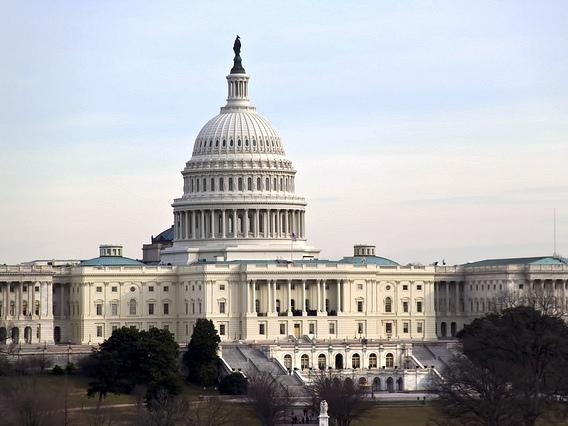
Section Branding
Header Content
Hospitals, Nursing Homes Fear Fee Cuts
Primary Content

Months after a high-profile fight to renew Georgia’s provider fee, the hospital industry is again concerned about the fee’s fate.
This time, the source of the industry’s anxiety is not the state Capitol, but Washington.
As the fiscal standoff intensified last month, the Republican House leadership at one point pushed repealing such Medicaid provider assessments, including those for nursing homes, according to hospital industry officials.
Other speculation has centered on the feds lowering the provider tax rates that a state can use to gain extra dollars for Medicaid.
That’s why local hospital and nursing home groups, along with their national associations, have recently sounded alarms over possible federal attempts at changing these assessments. The fees are used in 49 states to boost funding for Medicaid programs.
“Obviously, the entire Georgia hospital community is very concerned about this and will strongly oppose any efforts at the federal level to weaken the provider assessment program,’’ Kevin Bloye of the Georgia Hospital Association said in an email to GHN. “The program is key to preserving access to care for hundreds of thousands of Georgia Medicaid recipients.”
The hospital provider fee this year helped fill a nearly $500 million hole in Georgia’s Medicaid budget. Legislation enabling its renewal was fast-tracked through the General Assembly and signed quickly into law by Gov. Nathan Deal.
The state’s nursing home industry also gets a financial boost from a similar provider fee. And industry officials are worried about a change to the formula that would restrict the drawdown from the federal government.
Assessing these fees from providers lets states effectively increase the federal spending on their Medicaid programs.
Two-thirds of the hospital provider fee money generated in Georgia – known among critics as a “bed tax” – goes to shore up Medicaid’s budget. The rest goes to increase Medicaid reimbursements to hospitals.
Medicaid, a program jointly financed by the federal government and individual state governments, covers 1.5 million poor and disabled people in Georgia.
In September, the American Hospital Association published an alert on the issue, warning of cuts to provider fees.
The group noted the U.S. House approved its FY 2013 budget reconciliation package with cuts to Medicaid provider assessments of $11.2 billion over 10 years. President Barack Obama’s budget proposal for fiscal 2013 also included reductions of these fees.
“Provider assessment cuts are just another name for Medicaid cuts and harm the millions of children, poor and disabled Americans who rely upon this vital program,’’ AHA said in the policy brief. “Further cuts to hospital funding would put enormous pressure on already stretched state budgets and could jeopardize this critical health care safety-net program.”
For Georgia’s nursing home industry, the focus is on the percentage of provider assessments the feds allow.
The Georgia Health Care Association, representing nursing homes, says it’s aware of U.S. House proposals that would move the threshold down from its current 6 percent of revenue to 5.5 percent.
Georgia’s nursing home assessment is currently 6 percent of patient revenue.
“Reducing the provider fee threshold to 5.5 percent would result in a total loss (both federal and state share) of approximately $485 million for Georgia over a 10-year period,’’ Jon Howell, president and CEO of GHCA, told Georgia Health News in an email. “Clearly, numbers of this scale would have a catastrophic impact not [only] on skilled nursing care centers but the entire Medicaid budget as a whole.”
A national trade group representing the nursing home industry says 21 states depend on the 6 percent rate. “While still just a fluid proposal right now, this [reduction to 5.5 percent] is not a manageable cut for many providers and for your state in particular,’’ the American Health Care Association says on its website.
Hospitals in Georgia have a much lower assessment rate: 1.45 percent.
The conventional wisdom among experts is that the provider assessments are not going away because of their importance to almost all state budgets.
Ed Haislmaier, senior research fellow in health policy at the Heritage Foundation, told GHN that these funding mechanisms represent “states gaming the system for getting more [Medicaid] reimbursement. It’s perfectly expected behavior.”
Both Democratic and Republican state governments use them, Haislmaier noted. The conflict over the fees “is more a federal vs. state thing,’’ he said.
He said changing the provider assessment is “down the list for folks like myself who are looking at the bigger picture.’’ Medicaid needs to be fundamentally restructured, Haislmaier said.
Teresa Coughlin, a senior fellow at the Urban Institute, says that if the feds were to restrict the assessments, “the states would have to look for other revenue sources to fund their Medicaid program.’’
Federal funding cuts could reduce the rates that medical providers receive for serving Medicaid patients, she added.
See more at: http://www.georgiahealthnews.com/2013/10/hospitals-nursing-homes-fear-provider-fees-vulnerable/
Tags: Medicaid, health, nursing homes, Georgia Hospital Association, Georgia hospitals, Georgia nursing homes, hospitals, Provider fee, gpbwell, Hospital provider fee, Medicaid provider fee, hospital bed tax, Georgia Health News, Andy Miller
